How Recreational Weed Transformed A Small California Town
6:24 minutes
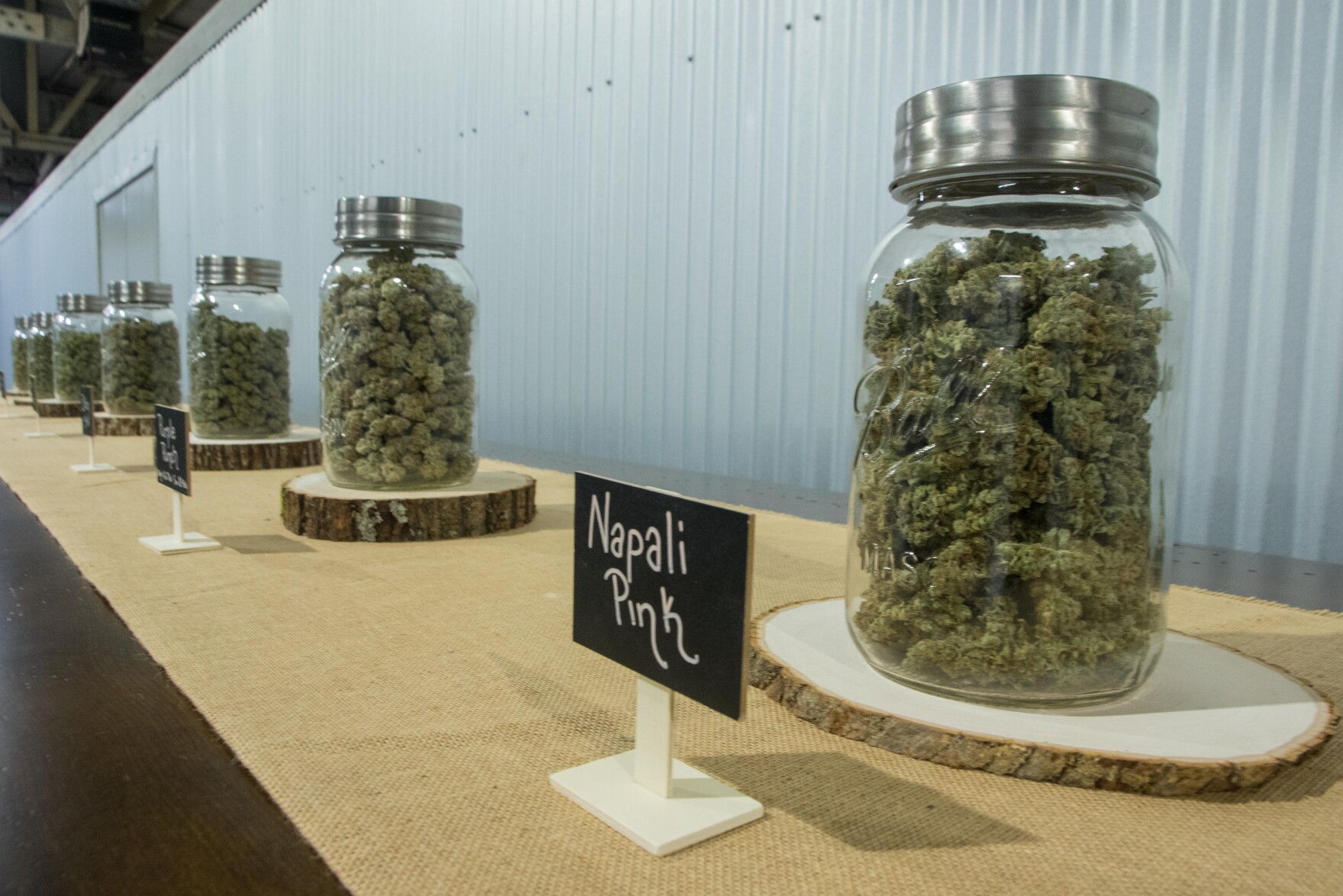
 This article is part of The State of Science, a series featuring science stories from public radio stations across the United States. This story, by Kerry Klein, was originally published on KVPR, Central California.
This article is part of The State of Science, a series featuring science stories from public radio stations across the United States. This story, by Kerry Klein, was originally published on KVPR, Central California.
From the outside, Jose Rivas’s gray, one-story office building seems just as unassuming as Woodlake, the small Tulare County City where it’s located. But once you’ve been escorted inside the wrought iron gate and checked in at the security desk, you’ll see a chemistry lab of so many potheads’ dreams: bubbling evaporators, storage tanks of liquid nitrogen, and trays and trays of drying marijuana buds.
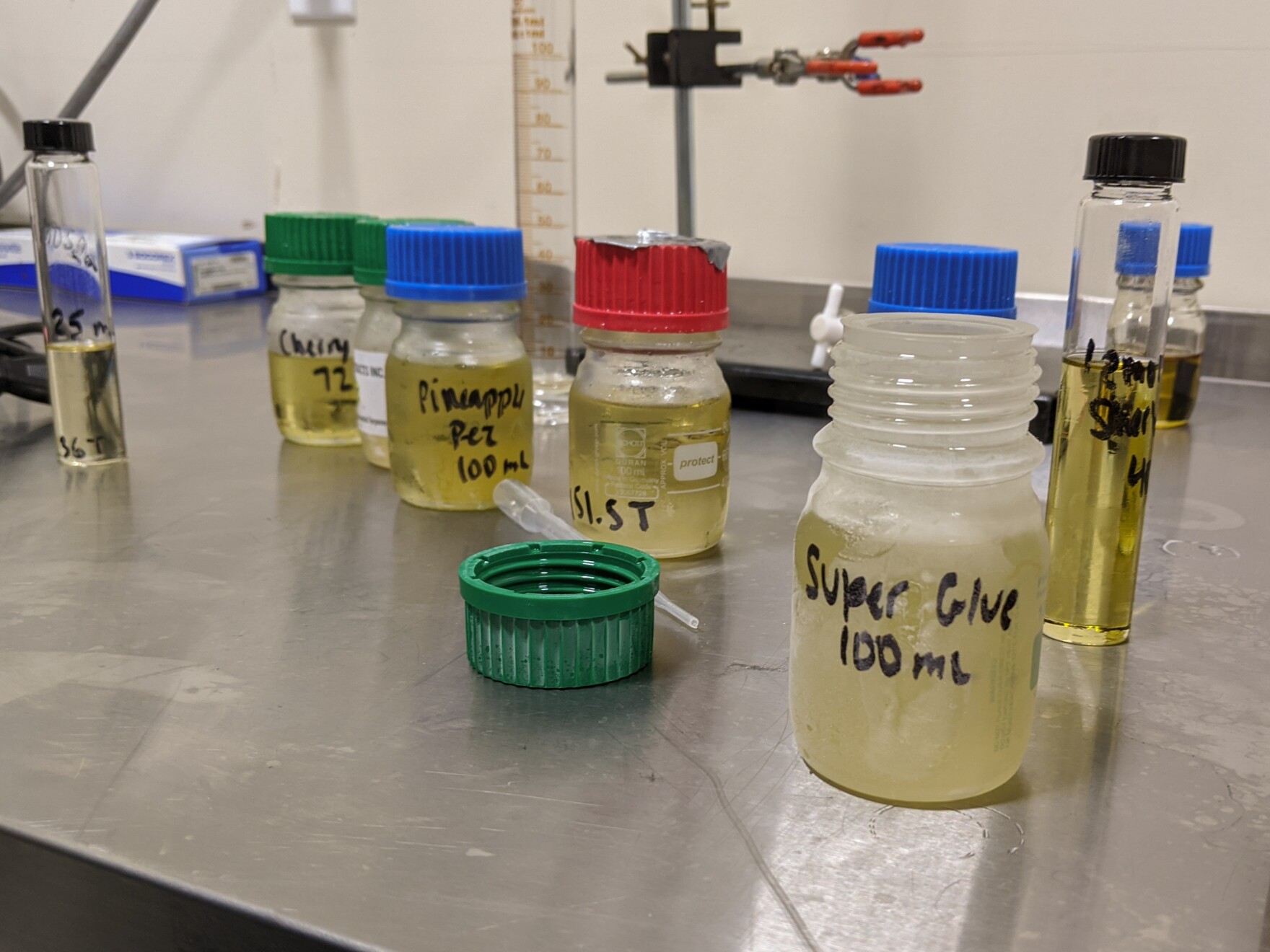
But Rivas isn’t a pothead – he’s the CEO of a cannabis company known as Premium Extracts that squeezes, distills and steams everything it can from the flower. “Essentially what we’ve developed here is a methodology to isolate the components and molecules of the cannabis plant, which are responsible for its taste, its flavor, and all the nuanced aroma that comes from each individual cannabis strain,” Rivas said.
In one room, Rivas showed me jars full of nearly pure THC, thick and oozing like tree sap. In another, freezers packed with vials of sloshing yellow and orange oils known as terpenes. “Have you ever smelled refined terpenes before?” he asked. When the answer was no, he fetched a dozen of the tiny vials and a glass dropper, setting us up for a smell-test. “It’s going to be a cool experience,” he said knowingly.
Terpenes are kind of like essential oils of cannabis. They add natural flavor and fragrance to products, without any of the active ingredients THC or CBD. “We have some that are heavy, like I would describe as a far waft of burning sugar and skunk,” he said. Others are fruity, like Pineapple Pez and Banana OG. And then there was the vial simply labeled Mimosa. “This one for me smells like, if you could imagine, a purple tangerine,” he said. I, sadly, could not imagine a purple tangerine.
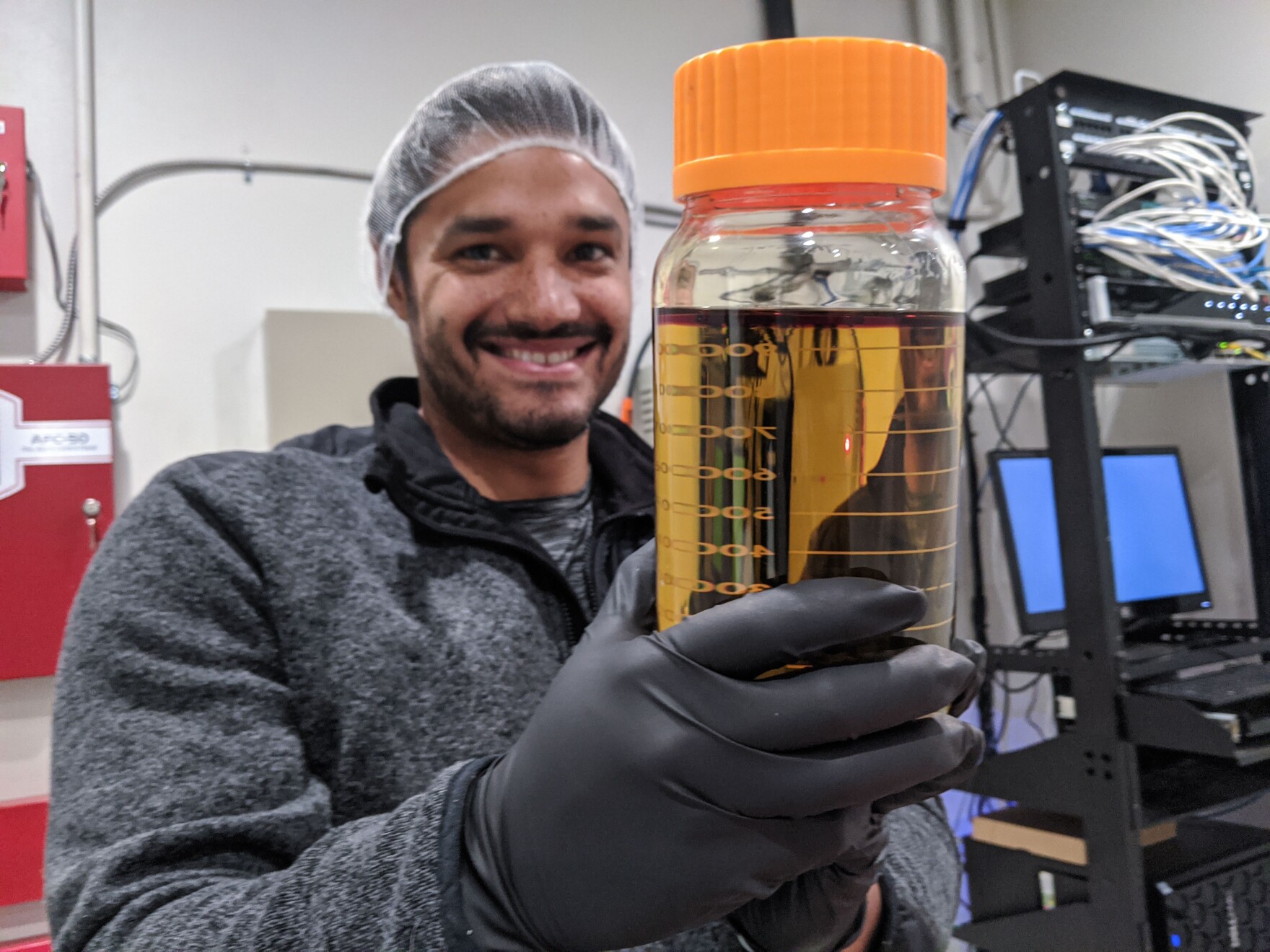
The language may be goofy, but Rivas isn’t messing around. His company has patented its terpene extraction process—it involves microwaves with holes cut out of the bottom to make way for glass tubes—and each chap stick-sized vial of oil is worth a few thousand dollars. Rivas said they’re used in high-end vaporizer pens.
“Of course everybody enjoys the euphoric feeling associated with recreational cannabis, but there’s much more to this plant and that’s what we’re trying to show the world,” Rivas said.
High-end is a theme throughout Woodlake’s cannabis world. Down the street, Wayne Bishop showed me a warehouse with an up-scale barn aesthetic: Think hardwood floors, antique tractors, and decorative mason jars full of marijuana buds. “Hopefully this year we’ll get an on-site consumption permit. So we’re trying to turn this into like a winery experience,” he said. When I suggested he could host weddings here, he said, “That’s what we’re going for.”
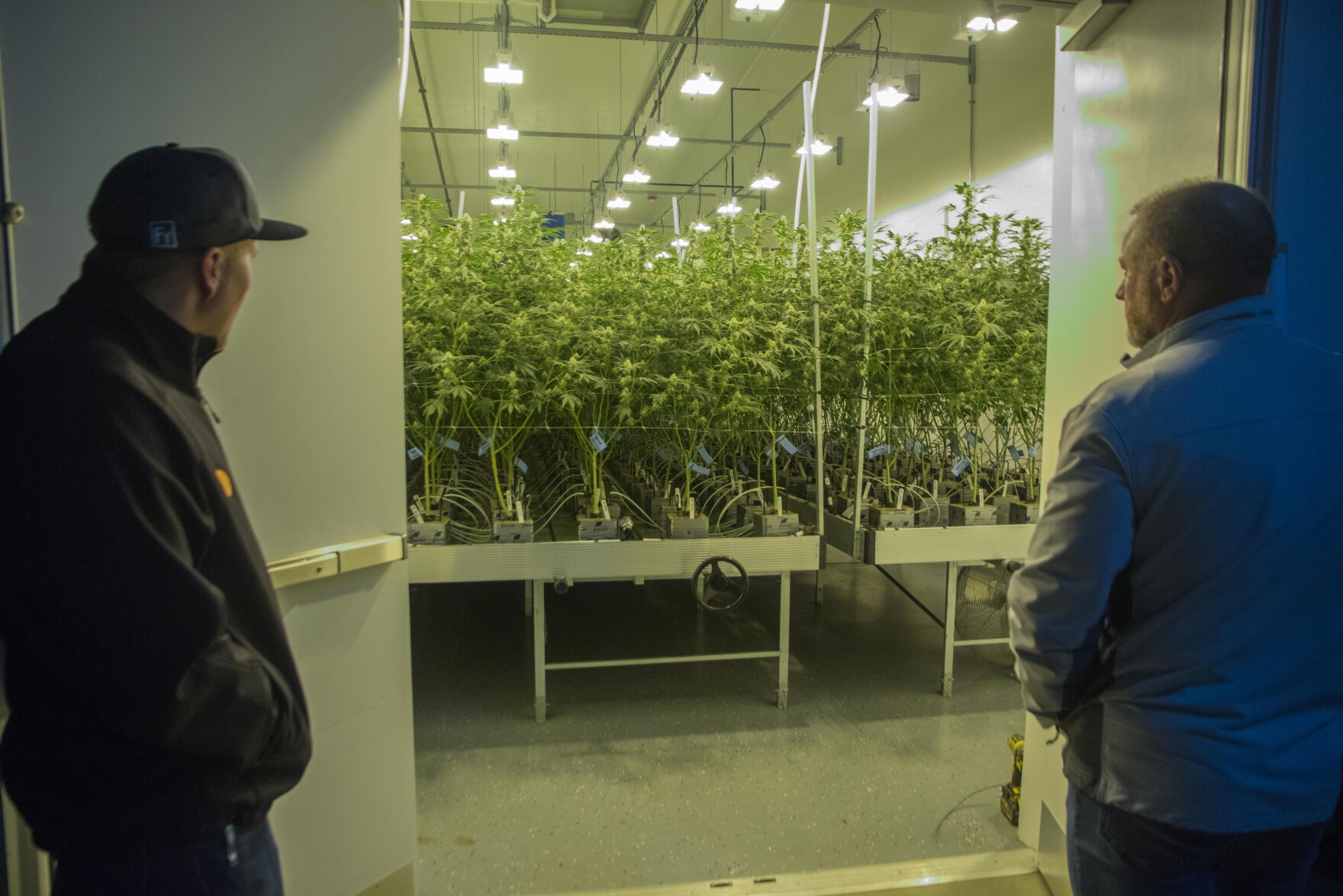
For now, however, Bishop’s cash flow comes mostly from the plants themselves. His company’s called 7 Points—for the plant’s distinctive formation of leaves—and it’s a cannabis cultivator and regional delivery service. In vast, sprawling rooms, 16,000 plants grow under blazing artificial sunlight. “We produce somewhere between 100 and 150 pounds of flower a week,” he said.
Whatever stereotypes you associate with illicit weed, these companies are trying to shake them. Their facilities are clean and professional, and they prefer the term “cannabis” to “weed” or “marijuana.” They view themselves almost like winemakers, only instead of chardonnay or pinot noir, they deal in Cherry AK-47 and Obama Cush. “We’re hoping to actually get to very much the wine industry where people will join our club,” said Bishop, “and every quarter we’ll send you a really cool wood crate with some flower in it and maybe some hand-blown pipes, maybe some of our edibles, just kind of a nice package to show up on your door.”
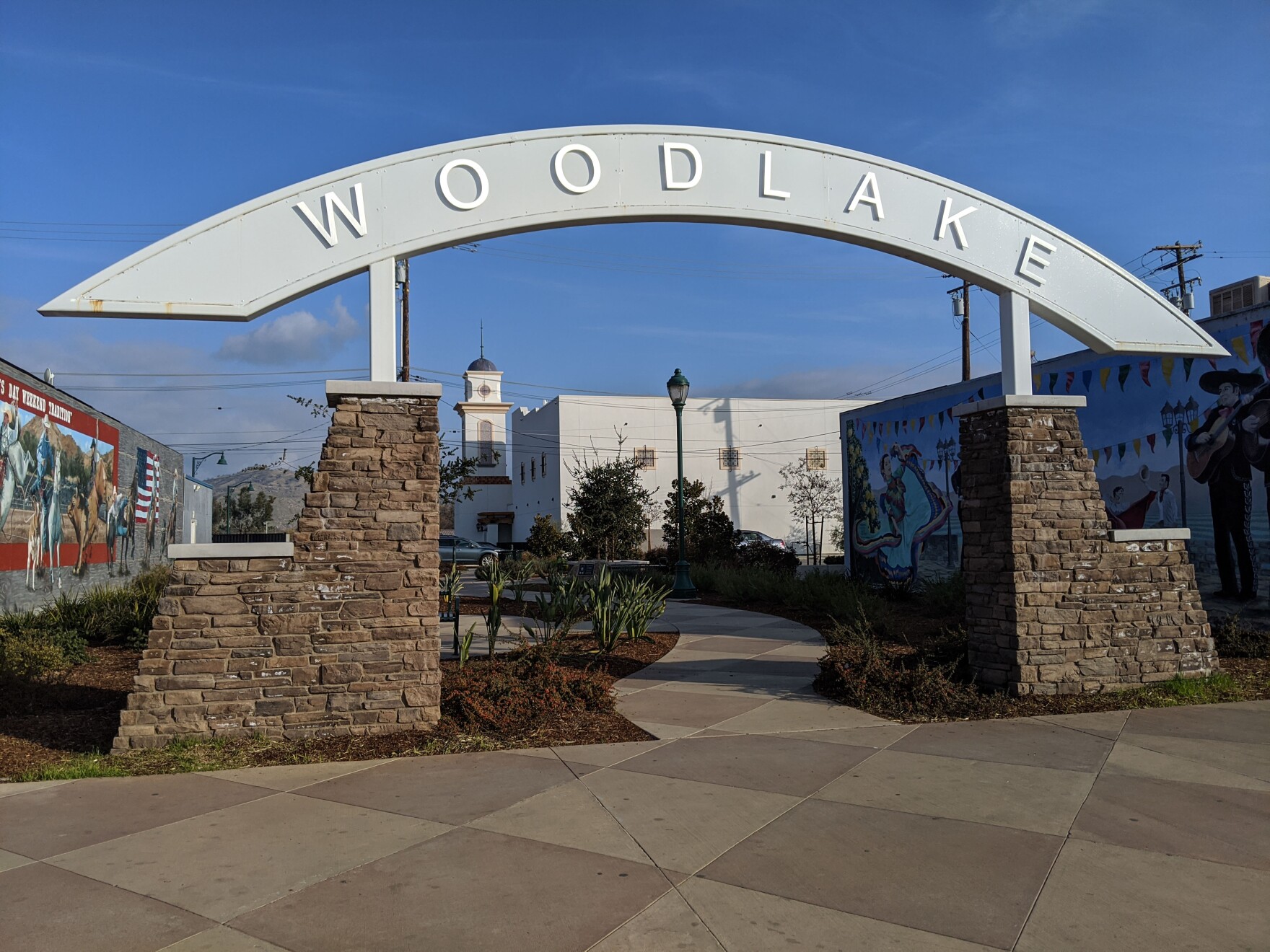
These are among the seven cannabis businesses currently operating in Woodlake, which was the first San Joaquin Valley city to embrace recreational cannabis back in 2017. By contrast, Fresno, a city 60 times its size, wouldn’t approve its first dispensaries for another four years.
So how did this recreational revolution happen in Woodlake, a town of 7,500 people, one fast food chain, and zero stoplights? As soon as California voters legalized recreational cannabis in 2016, city leaders recognized an opportunity. “This seemed like something that, based on our outreach, that a lot of people in town were in favor of, and city council was open to it, and staff was open to it,” said Community Development Director Jason Waters, “so we said ‘hey, let’s give it a shot.’”
Waters and other leaders welcomed new businesses while establishing a 5 percent sales tax on all cannabis products, limiting dispensaries so that only two could operate at a time, and mandating safety measures like employee background checks and round-the-clock video surveillance. “You really need an extensive set of rules,” said Waters. “That was really the first step, the first thing that we did.”
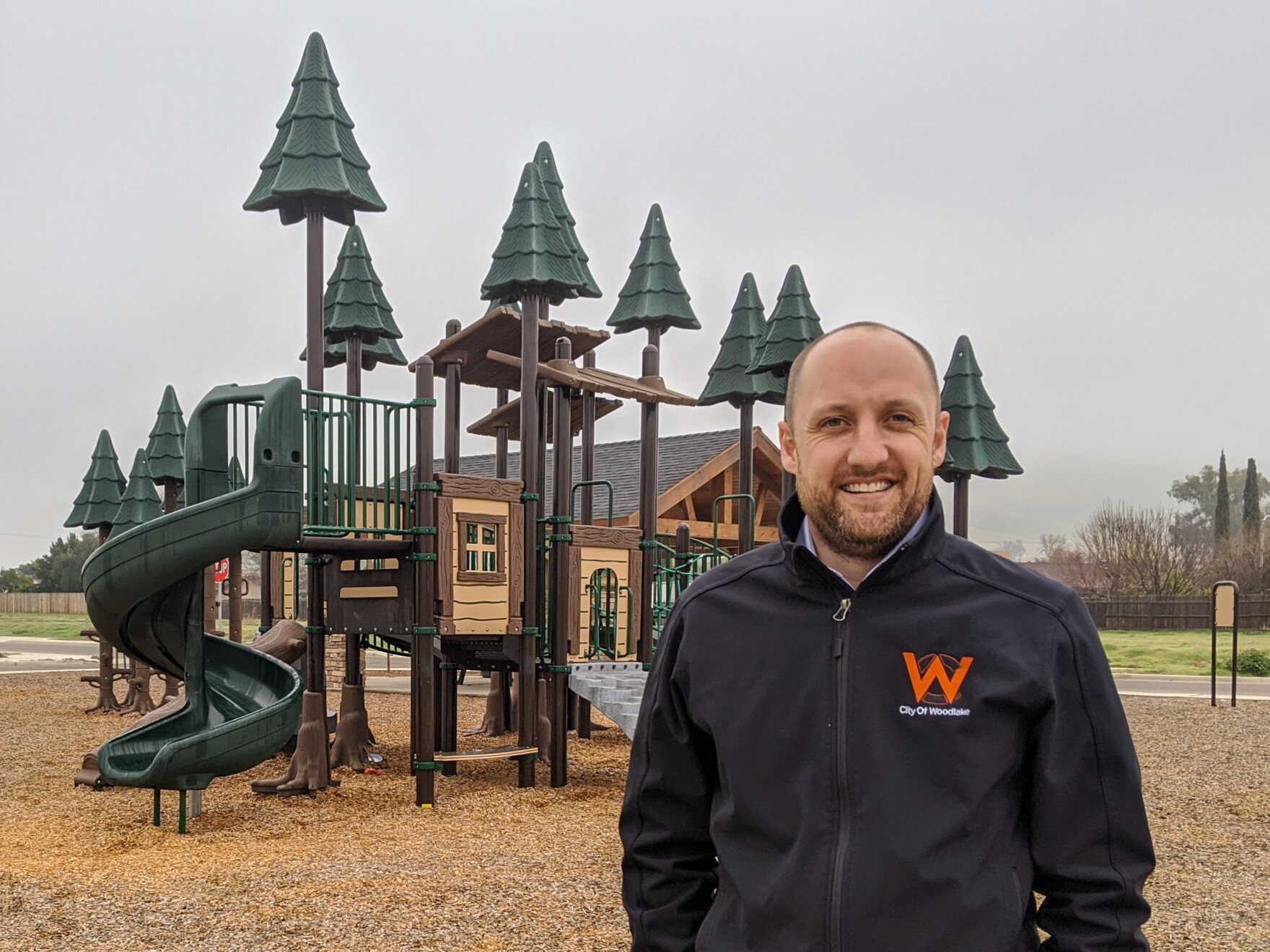
Waters spent an afternoon driving me around the town, showing off the lush green grass and jungle gyms at the many parks that have been upgraded thanks to the cannabis sales tax. So far, parks have been the beneficiaries of two-thirds of the roughly $2 million in tax revenue the measure has brought in since 2017. “The big one…is Castle Rock Park. It went from a vacant field,” he said. “It had grass on it, but we have soccer goals, baseball fields, we’re putting a restroom in. Those things happened because of the increase in revenue we had through this tax.”
The sales tax was approved by two-thirds of voters, but not all residents are happy. Many tell me they still feel conflicted about the industry, and others worry about being inundated by out-of-towners.
And with a dearth of recreational cannabis dispensaries in the region, people have flocked from all over. Managers of Valley Pure, the first recreational dispensary to open in the Valley on Woodlake’s main drag, told me hundreds of people stop by each day.
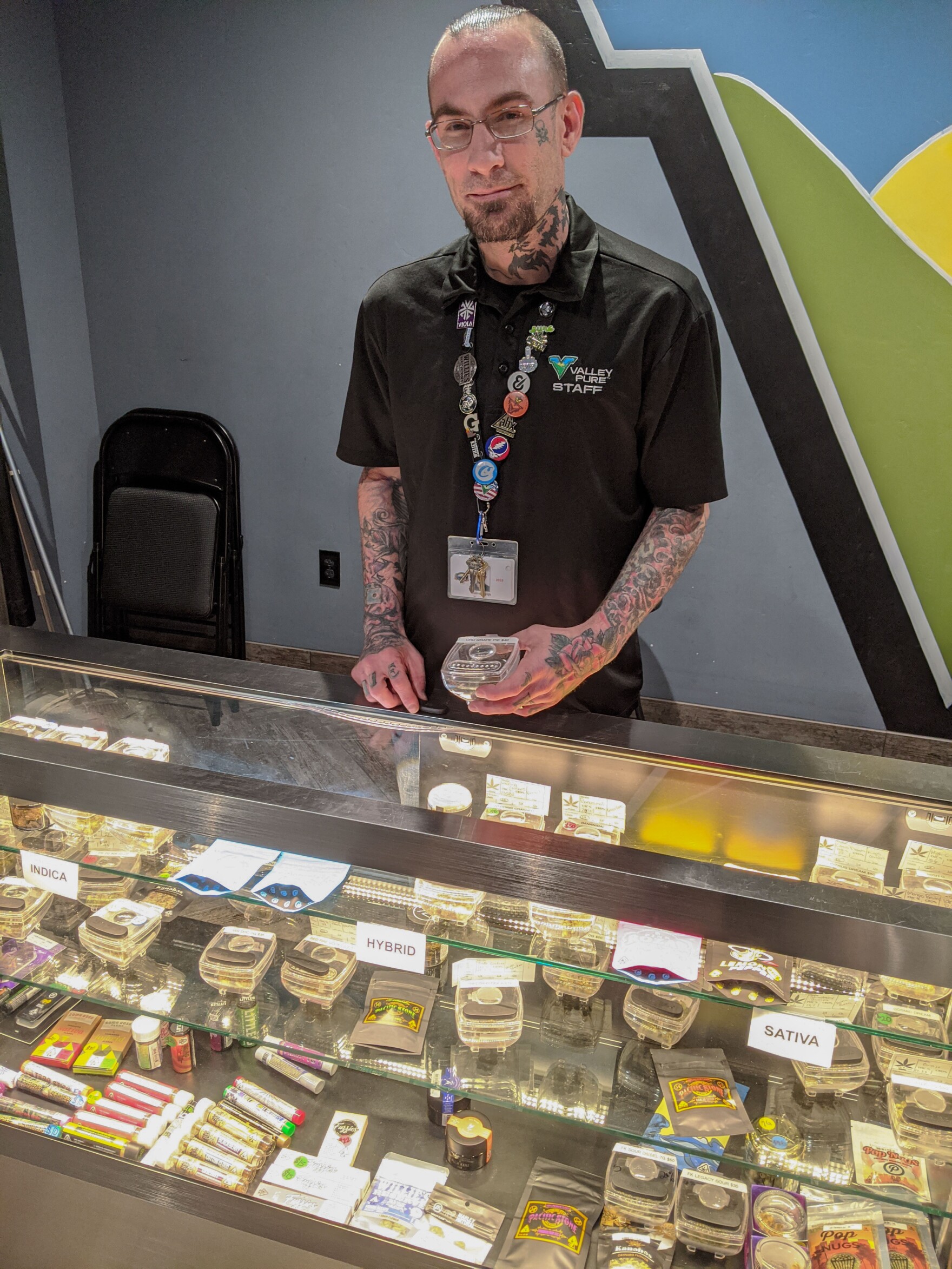
“Here we have all our gummies, they’re $10 a pack,” said sales associate Monica Fields, also known as a “budtender,” gesturing to brightly lit shelves full of vape pens, vacuum-sealed flower, and a plethora of edibles. “Pretzels, brownies, cookies, you name it, we probably got it,” she said.
Assistant manager Tommy Fields—married to Monica Fields—said they’ve got niche items too, like CBD suppositories. “From what I’ve heard, from a friend…his wife used it for her menstrual cramps and they went away. It completely killed her period symptoms,” he said.
The afternoon I’m there, I meet a 20-something couple stocking up for a vacation, as well as Jared Rosson, an Air Force vet who injured his back while on duty. “Unfortunately hospitals want to give you all the pain meds, and it’s not good, this is a much better route,” he said.
Rosson, who drives 25 minutes to Woodlake from Three Rivers, said he can’t believe it took so long to legalize recreational cannabis. But although the rest of the Valley has been slow to catch on, he’s happy Woodlake, at least, was ready.
Invest in quality science journalism by making a donation to Science Friday.
Kerry Klein is a reporter at Valley Public Radio in Fresno, California.
IRA FLATOW: This is Science Friday. I’m Ira Flatow. And now it’s time to check in on the state of science.
SPEAKER 1: This is KER–
SPEAKER 2: For WWNO–
SPEAKER 3: St. Louis Public Radio.
SPEAKER 4: KQED News.
SPEAKER 5: Iowa Public Radio News.
IRA FLATOW: Local science stories of national significance. The town of Woodlake, California, is a small city in the San Joaquin Valley. It’s got 7,500 people, one fast food chain, and no stoplights. What it does have is seven cannabis businesses. That’s right.
The recreational marijuana industry has transformed Woodlake over the years. And the tax revenue that comes from it has funded public goods, especially parks. And as more and more states legalize recreational weed, Woodlake could be an example of the massive change the industry can bring to small towns. Joining me to talk about this story is Kerry Klein, reporter for Valley Public Radio in Fresno, California. Welcome back to Science Friday.
KERRY KLEIN: Thanks, Ira.
IRA FLATOW: You know, I always like to talk about following the money, no matter what the story. So give us a bit of a history lesson. When did Woodlake’s cannabis industry start ramping up?
KERRY KLEIN: Well, this all got sparked in 2016, when California voters approved of Prop 64. That legalized recreational cannabis for adults. And it was pretty clear this would be a very highly-regulated industry. And so Woodlake city officials immediately recognize that with regulations could also come the opportunity for revenue.
So in 2017, a year after Prop 64 was passed, the city council put a measure on their ballot to levy taxes on these businesses. And then that ushered in ordinances and other regulations for how to actually allow these businesses to operate in the town. And then the first businesses started opening in 2018.
IRA FLATOW: I get it. And what makes Woodlake such a good place for the recreational marijuana industry?
KERRY KLEIN: I mean, I think the first thing really was these tax measures. I mean, obviously some companies and industries would be really scared off by heavy taxes. But they signaled, in this era, a way for the industry to operate legally for the first time. And so the city was able to attract not just dispensaries, but also cultivators, manufacturers, distributors, lots of folks on this cannabis supply chain. And so Woodlake became an oasis, kind of a beacon, almost, in this huge region of about 10,000 square miles that at that time were served by no other legal dispensaries, at least for recreational cannabis.
And so of course with all this, however, safety was also a major concern. And so the city did limit the dispensaries to only operating two at a time. And then to learn about the other safety measures, I spoke with Jason Waters. He’s the city’s community development director.
JASON WATERS: Background checks on people who work there, security cameras that we can access here at City Hall– so City Hall Police Department, we can log into a website and look at the cameras at that facility. They keep logs of who goes in and out of there. Two permits from us, permits from the state. So there are a number of things that they have to do that most businesses would never have to do.
IRA FLATOW: So how does Woodlake capture tax revenue from cannabis businesses? Is it from charging the buyers, the people who come in a tax, and then that gets passed through?
KERRY KLEIN: Yes, that’s the largest share, retail sales tax from dispensaries. That’s 5% that goes to the city on every retail sale. There’s also a property tax and a cultivation tax. And so in the four years these businesses have been in operation in Woodlake, the city has brought in more than $2 million in tax revenue, which is pretty big for a city, as you said, of just 7,500 people.
IRA FLATOW: Wow. Now, I said at the top that the tax revenue goes to parks. Is that what’s happening there?
KERRY KLEIN: Yes, the vast majority of it does. About 2/3 have gone to parks so far around the city, rehabilitating parks or bringing in new facilities, landscaping, things like that, bathrooms. There’s a good chunk of that money that’s gone toward fixing sidewalks and roads around the city, and then also a small amount on public safety. Some of that money also goes back into safety measures at these businesses and things like conducting inspections at the facilities.
IRA FLATOW: Now, I would imagine when a town goes into the cannabis business, there’s going to be some pushback from some of the residents. Did that happen there?
KERRY KLEIN: Yeah, there were definitely some people who spoke out in public meetings prior to the passage of these tax measures. But the tax measure did pass, but it barely squeaked by with the 2/3 vote it needed. So one third of the town did still oppose it.
And a few years into it, it is still easy to find residents who are uncomfortable with the industry. And some of those folks, it’s just on principle. But others feel that they’re being inundated by out-of-towners. I mean, even high schoolers that we’ve spoken to have told us they used to recognize most cars in town, but now there’s just a lot of unfamiliar foot traffic and cars, especially near the dispensaries.
But those out-of-towners are really grateful for this, too. And here’s an example, a customer I spoke to in the dispensary. His name is Jared Rosson. He injured his back in the Air Force, and he even had trouble accessing medicinal marijuana for his back pain.
JARED ROSSON: Unfortunately, the hospitals just kind of want to give you all the pain meds. And it’s not good. This is a much better route.
KERRY KLEIN: And this dispensary is about 20 minutes away from where he lives, which is much closer than the other options that he had had before.
IRA FLATOW: Interesting. We’re going to get into medicinal marijuana in our next segment following this, so that’s a good segue. But could Woodlake be a model for other small towns who want to take advantage of increased interest in recreational cannabis?
KERRY KLEIN: Yeah, I think absolutely it could. And I think it has been. I mean, again, Jason Waters with the city, he’s told me that folks have called him to talk about how they crafted their tax rules and ordinances. I haven’t done a deep dive into this, but it appears as though there have been no major patterns of increased crime, which many folks were concerned about bringing in this industry. And of course, other local businesses like cafes, restaurants, gas stations, they all get to benefit from this increased traffic around town.
IRA FLATOW: Terrific, Kerry. Thank you for taking time to be with us today.
KERRY KLEIN: Yeah, thanks so much. It was a pleasure.
IRA FLATOW: Kerry Klein, reporter for Valley Public Radio in Fresno, California. And if you’d like to read Kerry’s full story, you can head to our website, sciencefriday.com/stateofscience.
Copyright © 2022 Science Friday Initiative. All rights reserved. Science Friday transcripts are produced on a tight deadline by 3Play Media. Fidelity to the original aired/published audio or video file might vary, and text might be updated or amended in the future. For the authoritative record of Science Friday’s programming, please visit the original aired/published recording. For terms of use and more information, visit our policies pages at http://www.sciencefriday.com/about/policies/
Kathleen Davis is a producer and fill-in host at Science Friday, which means she spends her weeks researching, writing, editing, and sometimes talking into a microphone. She’s always eager to talk about freshwater lakes and Coney Island diners.
Ira Flatow is the founder and host of Science Friday. His green thumb has revived many an office plant at death’s door.